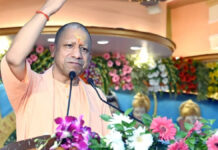Contrary to what the critics might say, we have a nation that is strong enough to accommodate all the viewpoints
Lately, several observers of democracy, the Freedom House of the US, V Dem based in Sweden and the Democracy Index of the UK, have commented that India may be moving towards an electoral autocracy. Such a conclusion is extremely unfair and positively damaging. Evidently, these agencies and others are unable to appreciate India having a strong Government. While the American establishment, especially the Pentagon, would like a viable ally against the expansionist China, these so-called liberals prefer to see India as a permanent Third World Society.
Do they realise that India has a dominantly Hindu ethos which is intrinsically an epitome of freedom? Anyone who believes in the phenomenon of karma is a Hindu. Whether he/she is a whole-time worshipper or an agonistic, it enjoys or suffers the fruit of his karma. No god sits on judgement over any individual or his/her community; there is no anticipation of a doomsday or an end of the world. Anadi-ananta, or there is no beginning of life and no end, according to Hindu scriptures.
Karma is reminiscent of physics, which says that for every action, there is an equal and opposite reaction. Every action by an individual, whether virtuous or vicious, is spontaneously recorded by the grand nature or its celestial computer as well as its reaction or bhagya. There is no single judge, nor only two alternatives for the individual, namely heaven or hell.
Any assertion of a single god resembles Deductive Logic which asserts a premise namely so and so is my God and He is the only God. The corollaries that emanate from the premise are flawlessly consistent. In sharp contrast, Hinduism is a specimen of Inductive Logic. Herein lies the freedom intrinsic to Hinduism. To illustrate this contrast, say, four Hindus happened to meet somewhere and discuss the subject of roses. The person from the north may say that roses are red. The southerner could assert that he has seen only white roses. The easterner may express serious disagreement and insist that the roses in his region are only pink. The person from western India may say you are wrong; roses are always yellow. After half an hour of animated argumentation, each would say: Possibly in your parts of the country, there are other colours of roses. Someone else would propose: Let us agree to disagree, and request that we exchange samples of all four colours.
A member of an Abrahamic or western background, in such a controversial situation, may well declare that roses are always red; the rest must be other flowers or, perhaps, weeds. Just as a Jew is a Jew, the rest are gentiles. That is where conflict and war begin. Prophet Abraham, when he first saw a vision, said God told him to prove his bonfires by sacrificing his own son Isaac. When he was about to obey God and behead Isaac, the Almighty told him to stop and sacrifice a goat instead. The western religion was thus born in violence; Prophet Moses had a much more violent experience when he freed the Israelis from the clutches of the Egyptians and brought them to Judea.
Again, Jesus Christ, the “son of God”, was brutally crucified, more violence.
When we went to Jerusalem, one morning the guide took us all to the foot of the Calvary Hill on the top of which Jesus Christ was was crucified. There are 14 stations, or stops, to the top of the hill where now is the Church of Sepulchre; the “son of God” was buried therein. At the time, I was too weak to climb all the distance. To please my wife and cousins, I said I would climb to station two and sit down and wait for them to return from the top. However, a magnet in the air drew me on and on. I went up all the 14 stations. I am not a Christian nor have been to a missionary school. So, I climbed to the top of the hill and returned without feeling any great extra weakness or fatigue.
In the deductive religions, there is limited scope for spirituality beyond the scriptures and places of worship. As a result, the believers tend to unite communally and fight in order to fulfill themselves collectively in the service of God. Whereas, the inductive Hindus are dependent on individual karmas and have no pressure to unite to serve society and, in turn, God. In the bargain, they unite only in the face of severe collective danger. In the bargain, they believe they are peace-loving and in the eyes of others they might seem deficient in courage. But those who believe in the deductive approach have their histories littered with violence and war.
As early as the ascension of Prophet Muhammad in 632 AD, the Caliphs initiated the conquest of the Middle-East, including Morocco in the west, to Iran in the east. The Moors of North Africa invaded Spain in 712 AD and reached Poitiers in France soon. Historian Ian Morris, in his book WAR, calls it the “Five Hundred-Years War” but it was actually longer. Eventually, Britain alone conquered one-fourth of the world.
(The writer is a well-known columnist and an author. The views expressed are personal.)




























